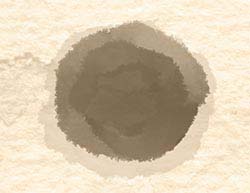September 22, 1992
Evans Road
Daniel J. Travanti
Some days, I find the pretense almost unbearable. I am reading Primo Levi’s The Drowned and the Saved. Naturally, any other considerations after his accounts—of the importance of a life lived normally—seem trivial. Yet, Levi himself would say, I believe, that my life is no more trivial than his, certainly, or anyone’s. I now know that pretending is an important part of the ritual of survival. It is a ritual, it really is. I establish patterns, change them, reject some, acquire new ones, and perpetrate my illusion on a grand scale.
Every day I ask—either directly in my mind, out loud, or tacitly by my actions—what it is I shall be doing today, and whether it is worth going through with. I move things around. Paper and strange objects like luggage tags given to me by my former agent. Silver circles with my initials engraved on them, but without the “J,” which annoys me, but which I can’t bring myself to throw out because they’re sterling and each has a genuine leather strap attached. These are valuable, sort of, or at least not ordinary junk. Even though I have no use for them, (Why would I need to identify my own luggage with initials alone, as if I don’t recognize my own property, and with an incorrect, or at least incomplete inscription? An address label is useful, but not this redundant semi-informative bauble) I can’t bring myself to eradicate them as I do used up scraps of paper. And you know, so many things I have are of this same nature.
A friend of mine calls houses and apartments the museums of our lives. Correct. Like most museums—almost all I’ve seen, actually—the contents are poorly catalogued and haphazardly collected. Either badly displayed, exasperatingly hidden, or lost behind some door, in some box or drawer, and of minimal or questionable value. Junk. Is this true? A museum of junk, representing my life? This then could mean that life, or at least mine, is merely a junk heap. I have suspected as much for many years now. I’ve joked about it. I’ve complained about badly arranged museums, though. I must complain about my own junk heap.
I arrange and rearrange. If I toss out, I must replace the thing. Sometimes, I plant flowers. We talk of “spending time”, “passing the time”, “killing time”, or “wasting time”; or we ask, ‘What are you doing with yourself these days?’. We are probably doing little with our own selves, except turning our selves loose on all the “stuff” around us. Is this a primary function? Is this a basic need, this activity, these things to push around? Are they even better than pets, because they are even more pliant? I move things. I move myself about moving these things. I could fairly call it exercise, I guess. This arrangement might be necessary. It might keep my body ticking; my mind and spirit groveling. A dictionary says this is “to give oneself over to base pleasures.” Could be that this shifting things around is a base instinct, like masturbation, or lolling in warm water? Maybe it’s not a trivial pursuit.
Most of the flowers I plant don’t grow, except for the bulb varieties. They keep coming back. It’s almost impossible for me to plant an annual. It seems such a waste. You have to keep replacing them. But I’m sick of stuff; sick of moving things around and replacing things. I want every thing to be a perennial. I don’t mind that flowers come and go. At least they’re organic. I can recycle them immediately. I used to clean up the garden. I even let my gardeners gather up leaves and twigs, bag them, and lug them out to the garbage pickup spot. Something told me this was redundant—downright stupid. Then I received permission to do it my way. A gardener—a real gardener, not just one of our rakers and leaf-blowers—on a B.B.C. horticulture program looked at me and said, fervently, “Just turn this all back into the soil. Let your garden feed itself! Don’t muck about in these twigs and rotting leaves, just kick and rake them back down into the dirt and make this lovely natural compost” (pronounced as the “O” in “off”). The man was positively giddy. So was I, at last. I thanked the television screen and came back to instruct everyone who went into my gardens to leave natural debris on the ground.
I wish I could do the same with the less destructible stuff. I do recycle clothes, appliances, and books, but they still replace themselves. They’re perennials, I guess, like the bulbs; they just keep coming back.
